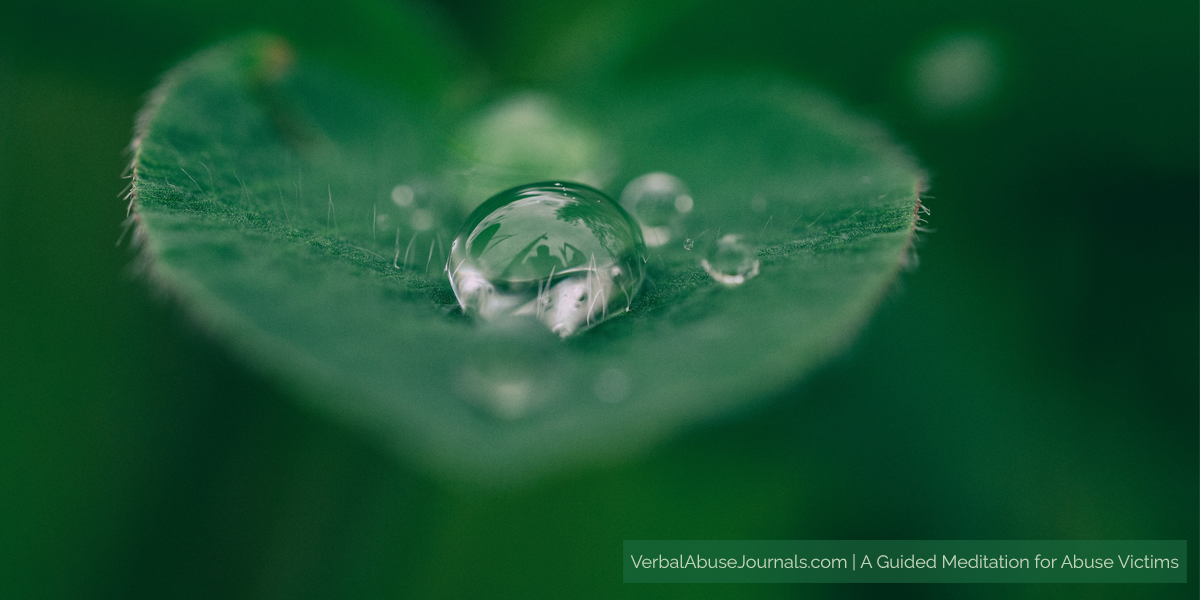Get the Abuser’s Voice Out of Your Head
My sister, Erin Chavez, created this guided meditation for abuse victims, although she meant it just for me at first. I had to tell you she made it for me first because my sister is so supportive of me and all-around awesome. And I want everyone to know she’s my sister.
This guided meditation helped me the first time I used it. I don’t want to spoil it for you, but the visualization part has played in my head over the past weeks.
You see, the entire website got screwed up when I moved it to a different server. I am actually writing this article in 2023, 13 years after leaving my abusive ex-husband. However, when I was triggered by a memory contained in this blog, I immediately saw myself doing as the meditation suggests even though I haven’t listened to it in years.
The memories of abuse usually don’t bother me every day. But, unfortunately, I’m finding that being reminded of them whooshes me back to the time and place they occurred. I remember the abusive event and the experience of writing about the event. The memories are the present.
But this guided meditation is helping to keep me mentally healthy during this triggering work.
Put on your headphones, get comfy, and press the play arrow. You’ll be very happy that you did.
Is Guided Meditation for Abuse and Trauma Helpful?
Guided meditation for abuse victims is a technique that is gaining popularity in the mental health community. It is a type of meditation that involves a trained therapist or recording to guide you through a specific story. The story helps you to reorganize how you think of your trauma. This technique is proven to help you deal with the emotional and psychological trauma that is often experienced by abuse victims.
Abuse can take many forms, including physical, emotional, and sexual abuse. The effects of abuse can be long-lasting. They can lead to mental health issues such as anxiety, depression, and posttraumatic stress disorder (PTSD). Guided meditation is one of the many tools available to help you cope with the effects of abuse.
What Happens During Guided Meditation?
During guided meditation for abuse victims, you are led through a specific story that focuses on relaxation, mindfulness, and self-compassion. The goal of this practice is to help you reduce stress and anxiety, develop a sense of calm, and improve your overall emotional wellbeing.
The practice of guided meditation for abuse victims happens in a variety of settings, including in a therapist’s office or at home using a pre-recorded meditation. The session typically starts by finding a comfortable position, either seated or lying down. The therapist or recording will then guide you through a series of relaxation exercises, such as deep breathing, progressive muscle relaxation, or visualization.
Guided meditation may involve focusing on a specific part of the body or repeating a mantra to help quiet your mind. The meditation may encourage you to focus on self-compassion and positive self-talk. Or, like the meditation on this page, it can enhance your sense of empowerment.
One of the benefits of guided meditation for abuse victims is that it can help you develop a sense of control over your thoughts and emotions. This can be especially helpful if you feel overwhelmed by the effects of abuse. The practice of meditation can also help you develop a sense of mindfulness, which is the ability to focus on the present moment and let go of negative thoughts and emotions.
I’ve noticed two things:
- If you are using a recording, headphones are helpful. They make your environment seem quieter.
- If I don’t feel properly relaxed when the recording moves into visualization, I move on with the recording anyway. While listening to the story, my mind goes somewhere else, I find myself relaxed after the session.
Guided Meditation Is a Part of the Treatment for Abuse Victims
In conclusion, guided meditation is a tool to help you cope with the aftermath of abuse. It can help you develop a sense of control over your thoughts and emotions, break destructive patterns, and much more. You should use it with other therapeutic approaches for a multi-faceted mental health plan. If you or someone you know is struggling with abuse or its aftereffects, seek help from a mental health professional.
With the right support and tools, it is possible to heal from the effects of abuse and regain your sense of wellbeing.
ChatAI wrote the bones of the section “Is Guided Meditation for Abuse and Trauma Helpful?”. But I heavily edited it. 🙂
Photo by Aaron Burden
Similar Pages
- After Abuse, Don’t Look Far to Find Yourself
- Do You Want Your Abuser Back?
- Healing Emotional Trauma in Recovery
- How to Avoid Abuse In Future Relationships
- Overcoming Verbal Abuse in 5 Critical Steps
- A Guided Meditation for Abuse Victims

